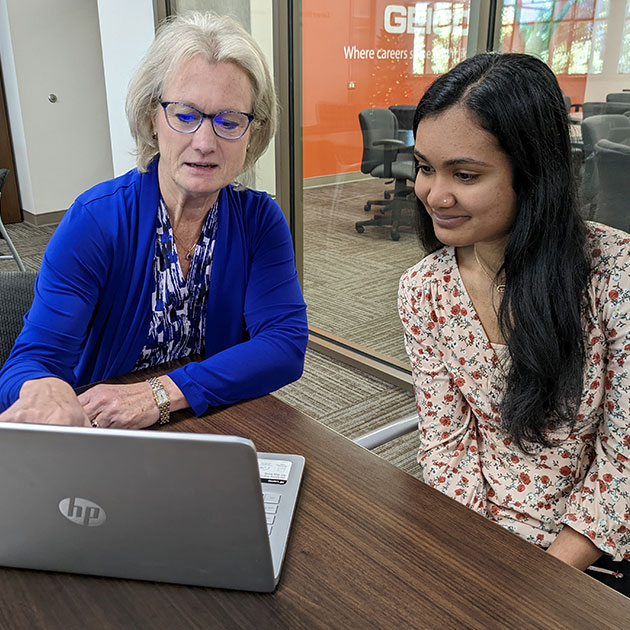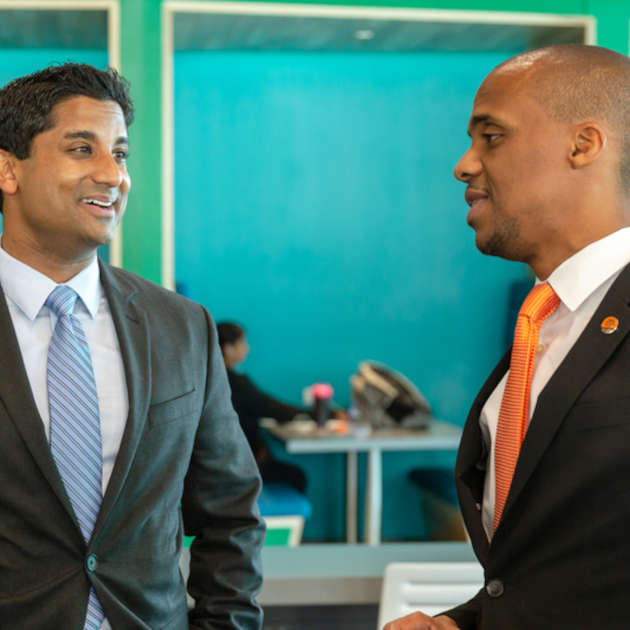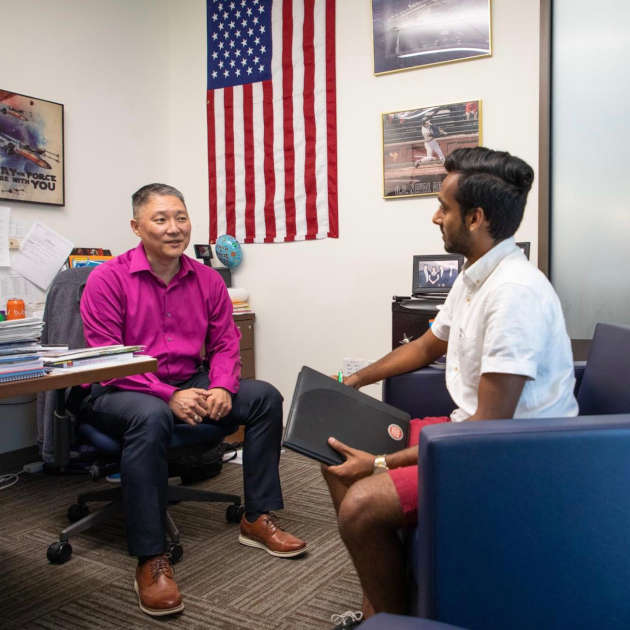
As undergraduate students, we are more than likely always in the career research phase of our educational careers. Whether we’re trying to learn about new trends in a certain industry or something as simple as a company’s culture, what we’re looking for isn’t always a Google search away. We seek information that is tailored to our background and expertise, but sometimes a company’s website just isn’t enough. So why not conduct an informational interview?
We have always been told how to master a traditional job interview, but what about an informational interview? For those who don’t know, an informational interview is a meeting to learn about the real-life experience of a current professional working in a field or company that interests you. Keep in mind that it is not a job interview, so always keep your focus on gathering information for your career research, not on getting a job offer.
The key to conducting an informational interview is to be organized and prepared. Below are some of the most important steps that have helped me be successful with informational interviews:
Ask Politely and Remain Courteous:
This is probably one of the most difficult steps in the entire process because you are never certain if the other person will be willing to help. Which is why it is important to make sure your invitation email is close to perfect. The most important thing to remember is to always remain courteous of their time; remember that the professional is most likely very busy. It is also up to you to decide whether you want to meet in person or talk over the phone. Below is a sample email I used to reach out to someone:
Dear [first name],
My name is [your name], and I’m a [major] student at The University of Texas at Dallas. I’m reaching out because [reason why you want to speak with this person]. I’d love to learn more about [two or three things you’d like to learn from the person, make sure these are tailored to the person you will be speaking with].
I know your time is valuable, even 30 minutes would be greatly appreciated.
Thank you,
[Your name]
There may be times when you don’t get a response, and at that point, you have the choice to either gently remind the person again, or move on to the next career professional. Never get discouraged; always keep trying.
Be Prepared:
This is undoubtedly the most important step of the entire process, DO YOUR HOMEWORK! Look up the professional on LinkedIn, see what companies he or she follows, which articles the person has published, where he or she went to school, etc. Conduct a general Google search on the person to see what he or she is involved in outside the workplace. This always makes for great talking points. This information will allow you to get to know the professional even before the interview. Which ties into the next step, write down the questions you want to ask the professional. I like to separate the questions I will ask into three sections: Introduction, Information, and Conclusion
Introduction:
Get the conversation going by giving a short introduction of yourself. The person will usually do the same, and the conversation will go from there. This is the perfect time to ask: How did you get started in this industry? How did you transition from [old job/role] to [new job/role]? What current projects are you working on? While your main motive is to gather information, it wouldn’t hurt to be prepared to talk about your own experiences, especially if they correlate with any of the professionals.
Information:
This is the part where you get exactly what you’re looking for. You set up this interview for a purpose; make sure you fulfill that purpose. For example, when I conducted an informational interview, I was very eager to know about the company’s diversity and inclusion initiatives, so I asked questions like: What does diversity look like at your company? Your company has a diversity program for college sophomores; would you know anything about that? This is where you are in complete control, so ask away.
Conclusion:
The ending is probably the best part because, hopefully, you’ve had a great conversation with the professional, but also because this is your opportunity to create a connection that will help you in the future. Before you conclude the interview it is IMPORTANT to ask if the person knows anyone else who would be willing to help you with your career research. More than likely the professional can think of one or two others willing to help, and *BAM*, you have two other pending connections to add to your network.
Stay In Touch:
You have successfully added a new connection to your network; now make sure you maintain that relationship. No more than 24 hours after your interview make sure to email the professional to thank him or her for the interview. If the professional agreed to connect you with some colleagues, it wouldn’t hurt to mention that in the email. Remember to personalize the email by highlighting a few talking points that were memorable.
The informational interview has helped me expand my network into areas that I never thought I would be able to. Although such interviews are mainly to help you get information for your career research, the best part is being able to connect with someone else who was once in your shoes. UT Dallas gives us a lot of great resources that help us attain internships and network with professionals, but remember that it is up to you to ensure your success after college. Go the extra mile and conduct an informational interview, who knows? You might just land your dream job.





